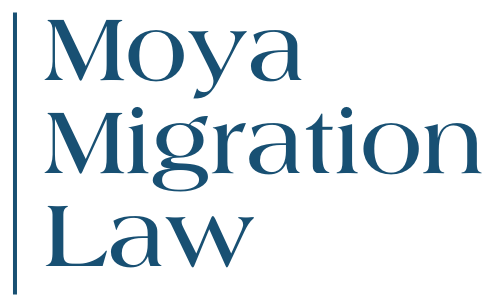Introduction
Receiving a visa refusal under Public Interest Criterion 4020 (PIC 4020) can be a distressing experience, and while this article focuses on a specific integrity issue, it’s helpful to understand the other common reasons for an Australian visa refusal. As a key integrity measure in Australia’s migration law, this criterion ensures that all information provided in a visa application is accurate and that no bogus document has been submitted.
The consequences of a PIC 4020 finding are severe and can include a three or ten-year ban on future visa applications, but a path forward may be available through a waiver. This guide provides essential information for navigating a refusal and offers a detailed roadmap for the waiver application process, focusing on how to build a strong and effective submission.
Common Triggers for a PIC 4020 Visa Refusal
Employment & Education History Inconsistencies
Discrepancies in your work or educational background are a frequent cause for a PIC 4020 refusal. The Department of Home Affairs cross-references the information you provide, and any inconsistencies can be treated as false or misleading information. This is particularly relevant for skilled visa applications, a common reason for a business or working visa refusal, where your experience and qualifications are central to meeting the visa criteria.
Common issues that can trigger a PIC 4020 review include:
| Triggering Issue | Description |
|---|---|
| Conflicting Job Details | Providing employment information (e.g., job titles, duties) that does not align with tax records or reference letters. |
| Fraudulent Documents | Submitting altered or fake educational certificates, academic transcripts, or employment references to claim false skills or experience. |
| Exaggerated Claims | Stating a level of skill or experience that is not supported by the evidence provided in the visa application. |
Undisclosed Visa Refusals & Cancellations
A visa applicant must declare any previous visa refusals or visa cancellations from any country. Failing to disclose this information is a significant issue that often leads to a PIC 4020 finding, as it is considered providing false or misleading information.
The Department has access to international databases and can easily verify your immigration history. This requirement applies even if the refusal occurred many years ago or if you were a dependent, such as a minor, on a family member’s application at the time.
An honest mistake, like forgetting an old tourist visa refusal, can still have serious consequences for your current application.
Bogus Documents & Questionable Relationship Evidence
Providing a bogus document in your visa application is a direct breach of PIC 4020. A document is considered bogus if it is counterfeit, has been altered without authority, or was obtained through a false or misleading statement. It is crucial to ensure all documents submitted are genuine and accurate.
Examples of bogus documents that can lead to a visa refusal include:
- Fake or altered passports, birth certificates, or marriage certificates.
- Photoshopped images intended to mislead the Department.
- Falsified financial statements or work references.
In partner visa applications, the authenticity of your relationship evidence is closely examined. Submitting documents that create a false impression of your relationship can trigger a PIC 4020 refusal, which is why it’s vital to ensure you have enough evidence to lodge a partner visa application.
Request Your Free 15-Min Consultation
Navigating the PIC 4020 Waiver
The Legal Test for a PIC 4020 Waiver
If you are facing a three-year ban for providing a bogus document or false or misleading information, you may be eligible for a waiver. It is important to note that this waiver is not available for the ten-year ban that results from identity-related fraud.
The Department of Home Affairs has the discretion to waive the PIC 4020 requirement if specific legal tests are met. The decision-maker must be satisfied that one of two grounds exists:
- There are compelling circumstances that affect the interests of Australia.
- There are compassionate or compelling circumstances that impact the interests of an Australian citizen, an Australian permanent resident, or an eligible New Zealand citizen.
The waiver is intended for exceptional situations, and the burden is on the visa applicant to prove that their circumstances are forceful, convincing, and justify overriding the PIC 4020 finding.
It’s worth emphasising that the applicant’s own hardship is not considered; the focus must be on the impact on Australia or an Australian.
Compelling Circumstances Affecting Australia’s Interests
This ground for a PIC 4020 waiver requires demonstrating that your presence in Australia would provide a substantial benefit to the country. The circumstances must be so exceptional that they outweigh the Department’s interest in maintaining the integrity of the migration program.
Arguments often centre on significant economic, business, cultural, or diplomatic impacts. For instance, consider a case where a medical researcher is refused a visa for a minor discrepancy in their application history. If they are leading a critical research project on a disease affecting a regional Australian community, a waiver could be argued. The argument would be that their unique, irreplaceable skills are vital to a public health initiative, and their refusal would be a loss to Australia’s interests.
Examples of circumstances that may affect Australia’s interests include:
- A loss of significant benefit to Australia’s business, economic, or cultural development
- An adverse impact on Australia’s trade or business opportunities
- Damage to Australia’s relationship with a foreign government
Compassionate & Compelling Circumstances Affecting an Australian
This is the more common ground for a waiver and focuses on the severe hardship a visa refusal would cause to an Australian citizen, permanent resident, or eligible New Zealand citizen. The circumstances must be both compassionate, invoking sympathy, and compelling, meaning they are forceful and convincing.
It is not enough to show the normal emotional distress of family separation. To illustrate, imagine a partner visa applicant is the primary caregiver for their Australian citizen spouse, who suffers from a chronic and debilitating illness. Evidence from medical specialists detailing the spouse’s reliance on the applicant for daily care and emotional support would be crucial. The argument would be that the refusal would cause extreme hardship to the Australian spouse, leaving them without their essential support system.
Circumstances that may be considered compassionate and compelling include:
- The adverse effects on a minor child who is an Australian citizen or permanent resident
- Significant health or welfare issues affecting an Australian citizen or permanent resident
- The continuing separation of immediate family members where the Australian cannot reside in the applicant’s home country
Request Your Free 15-Min Consultation
Building a Strong Waiver Submission
Essential Waiver Evidence Checklist
A strong waiver submission for a PIC 4020 refusal is built on comprehensive and persuasive evidence. Your goal is to provide documents that directly support your claims of compelling or compassionate circumstances. The specific evidence will vary with each case, but a thorough submission should include relevant items from the following categories:
| Evidence Category | Key Documents & Examples |
|---|---|
| Personal Statements & Explanations | A detailed statutory declaration that acknowledges the error, explains the context without making excuses, and expresses genuine remorse. |
| Proof of Ties to Australia | Birth certificates or passports of Australian citizens, documentation of permanent residents, or records of eligible New Zealand citizens involved in the claim. |
| Medical & Psychological Evidence | Reports from registered doctors or psychologists, detailed documentation of the Australian’s health issues, and an assessment of the negative impact a refusal would cause. |
| Community & Employer Support | Letters of support from employers, community leaders, or professional bodies in Australia attesting to your character or compelling circumstances. |
| Evidence of Unique Skills/Contributions | Letters of offer from employers in critical sectors, independent skill assessments, and evidence from industry bodies regarding skill shortages. |
| Financial & Family Evidence | Marriage and birth certificates to prove relationships, and statutory declarations from family members detailing financial hardship, caregiving roles, or dependency. |
Using Personal Statements & Experienced Reports
While all evidence is important, personal statements and experienced reports carry significant weight in a waiver application.
A statutory declaration from the applicant is your opportunity to provide a personal narrative, explain the circumstances that led to the PIC 4020 issue, and demonstrate transparency to the Department of Home Affairs. This document helps humanise your application beyond the forms and technical details.
Experienced reports from professionals like doctors, psychologists, or industry specialists provide objective, credible validation for your claims. For instance, a psychologist’s report can formally document the severe mental anguish a separation would cause an Australian citizen spouse, transforming a personal plea into a professional assessment.
Similarly, a letter from an industry body confirming your skills are irreplaceable provides an independent, authoritative voice to support an “interests of Australia” argument.
Request Your Free 15-Min Consultation
Practical Steps After a PIC 4020 Refusal
Reviewing a Refusal & Responding to Natural Justice
The first step after receiving a visa refusal is to carefully review the decision letter. This document outlines the specific reasons for the PIC 4020 finding and identifies the exact bogus document or misleading information that the Department of Home Affairs has relied upon.
Before a final decision is made, the Department will often issue a ‘Natural Justice Letter’, also known as a Section 57 letter. This provides a critical opportunity to respond to their concerns, typically within a 28-day timeframe.
During this period, it is essential to:
- Evaluate the root cause of the issue
- Gather supporting evidence
- Prepare a detailed and truthful response that addresses the allegations directly
Seeking Legal Advice & Considering an Appeal
Given the complexity of PIC 4020, seeking immediate advice from an immigration lawyer or a registered migration agent is crucial. These professionals can:
- Assess the legal soundness of the Department’s decision
- Guide you on the best course of action for your visa application
- Help prepare documentation for any appeals
If your visa has been refused, you may have the right to appeal the decision through a merits review at the Administrative Appeals Tribunal (AAT). It is vital to act quickly, as strict time limits apply for lodging an appeal, generally 21 to 28 days from the date of the refusal.
Request Your Free 15-Min Consultation
Conclusion
A visa refusal under PIC 4020 for providing a bogus document or misleading information can have severe consequences, including a three-year ban on future visa applications. However, a path forward may be available by applying for a waiver, which requires a strong submission demonstrating compelling circumstances affecting Australia’s interests or compassionate grounds affecting an Australian citizen or permanent resident.
Navigating the complexities of a PIC 4020 refusal and waiver application requires specialised legal knowledge to ensure the best possible outcome for your visa. For experienced guidance and a comprehensive assessment of your case, contact our visa appeal lawyers at Moya Migration Law today to discuss your circumstances and build the strongest possible submission.









